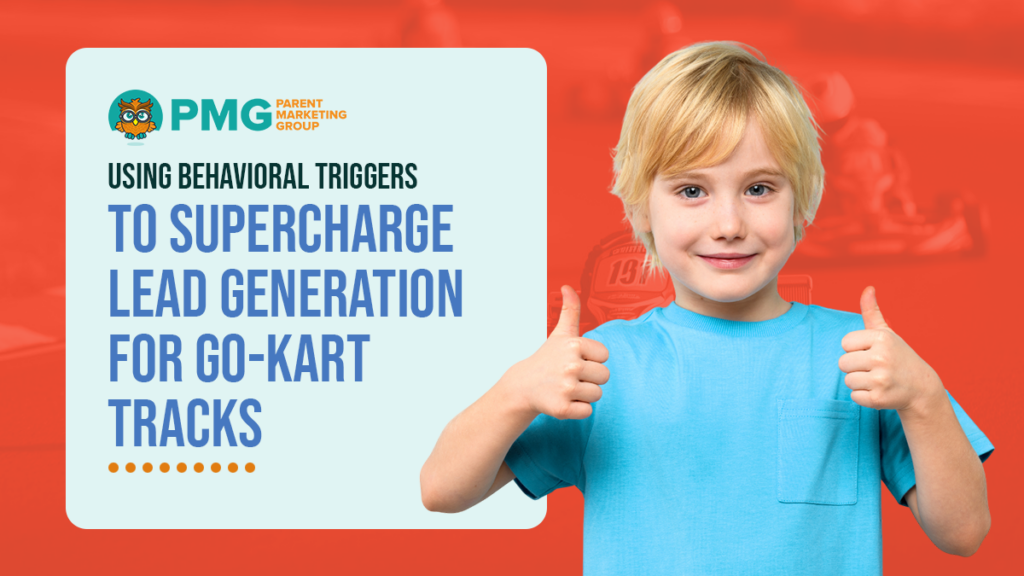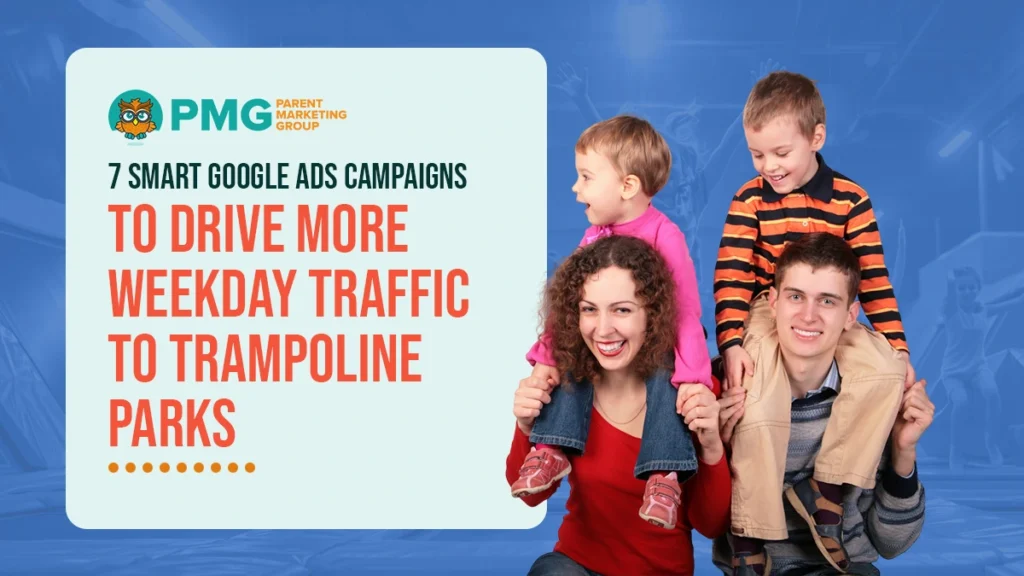Content marketing for parents is more than just catchy headlines and polished blog posts—it’s about building real trust with moms and dads actively seeking guidance, connection, and resources. In today’s noisy digital landscape, local relevance matters. Parents want to hear from brands that understand their neighborhood, school district, and day-to-day challenges.
Whether you’re a family-focused business, enrichment program, or healthcare provider, crafting community-centered content positions you as a helpful, go-to resource. It boosts visibility and builds long-term loyalty among parents who feel truly seen when done right. Let’s explore how to create content that resonates—locally and meaningfully.
Marketing to Parents: Why Local Relevance Matters

Marketing to parents in 2025 means showing up with intention, not just information. Today’s parents are smart, selective, and deeply rooted in their communities. To connect with them, yourcontent has to speak to their local world—because that’s where trust begins.
Parents Want Content That Feels Like It’s Made For Them
When a parent clicks on a blog or open an email, they ask, “Is this helpful to me?” Local relevance helps you answer that with a clear yes. It turns generic advice into content that feels tailored, thoughtful, and grounded in the parent’s reality.
Here’s what that can look like in action:
- Mention familiar landmarks or spots: Whether it’s “near the splash pad at XYZ Park” or “just off Main Street,” these references add instant credibility.
- Name local challenges: Parents relate more to “navigating school drop-off on Maple Ave” than vague advice about busy mornings.
- Include regional context: Tips that account for local weather, school calendars, or city-wide events show you’re genuinely plugged in.
When parents feel your content is relevant to their everyday lives, they tend to keep reading and start trusting.
Content That Shows Up in Their World (Not Just Their Feed)
Localizing your strategy means thinking beyond the screen. Parents live in real places, not algorithms. The more your content reflects their day-to-day, the more likely they will engage.
Consider weaving in ideas like these:
- Event-based resources: Highlight seasonal happenings like school registration deadlines, local festivals, or fall sports sign-ups.
- Geo-targeted tips: Offer location-specific advice, such as “best rainy day activities in Arlington” or “after-school snacks near Loudoun schools.”
- Hyper-local guides: Roundups of playgrounds, birthday party venues, or pediatric dentists build loyalty and drive traffic.
This content positions your brand as a neighbor, not a marketer. That distinction makes all the difference.
What Makes Local Content Stick With Parents?
The best local content doesn’t just inform—it feels personal. It mirrors the questions and conversations parents are already having in the carpool line or the PTA group chat.
These elements often create that sticky, memorable effect:
- Relatable scenarios: Talk about the stress of packing lunches while stuck in traffic on Route 28. Specifics make it real.
- Shared values: Highlight topics that matter locally—like school safety, outdoor spaces, or community involvement.
- Timely delivery: Sync content with the rhythm of local life—think school breaks, snow days, or new daycare openings.
When you connect on that level, parents remember you—not just the content.
Content Marketing for Your Parenting Website: Building Trust Through Value

Content marketing for your parenting website is crucial in building lasting relationships with your audience. Parents are selective about the sources they trust, especially regarding decisions affecting their families. That trust is earned through consistent, relevant, and value-driven content. The most effective content strategies go beyond general advice—they deliver practical, localized insights that address parents’ real concerns while positioning your brand as a reliable resource.
Addressing Real Needs with Targeted, Useful Content
Most parents arrive at your website seeking solutions to specific problems. Your ability to meet those needs with clarity and empathy is the foundation of effective content marketing.
To better connect with your audience:
- Answer frequently searched questions: Create content based on search intent, such as “best sleep training tips” or “daycare options in [city].”
- Keep messaging clear and actionable: Avoid jargon and aim for practical takeaways parents can use immediately.
- Prioritize ease of navigation: Help users find the content they need quickly through intuitive site structure and internal linking.
When your content is easy to find and immediately useful, it builds credibility from the first visit.
Localize Your Content Strategy to Build Community Trust
General parenting content is widely available—but parents searching for services, support, or activities want resources tailored to their location. Localized content builds relevance and signals that your brand is genuinely connected to the community.
Consider integrating elements such as:
- Local resource roundups: Create guides to area schools, pediatricians, camps, or weekend family events.
- Spotlights on local organizations: Highlight partnerships or feature local experts and businesses.
- Community calendars: Offer up-to-date listings of local events that appeal to families.
This approach positions your website as a provider of parenting advice and a trusted hub for local information.
Use Storytelling to Humanize Your Brand
While factual content builds authority, storytelling adds the emotional layer that fosters brand affinity. Sharing authentic stories allows parents to see the human side of your organization.
Effective storytelling might include:
- Customer or client spotlights: Using your services, brief interviews, or testimonials from local parents.
- Brand origin stories: Explain how and why your organization was founded, especially if inspired by a parenting journey.
- Team features: Introduce staff or contributors with relevant expertise or personal connections to parenting.
These narratives differentiate your brand and deepen trust through relatability and transparency.
Maintain Consistency to Reinforce Authority
Consistency is essential for content marketing success. A regular publishing schedule helps establish reliability, ensuring your audience knows when and where to expect valuable content.
Key practices include:
- Developing a content calendar: Align your schedule with the academic calendar, seasonal trends, and common parenting milestones.
- Repurposing across platforms: Maximize reach by adapting content for blogs, newsletters, and social media.
- Monitoring engagement: Use analytics to refine your strategy based on which topics work best with your audience.
Over time, consistently delivering relevant, localized, and high-quality content solidifies your brand as a trusted resource for parents.
Marketing to Parents 101: Foundations for a Winning Local Strategy

Effective marketing to parents requires a foundation built on trust, relevance, and thoughtful communication. Parents are selective consumers who value credible information, meaningful support, and brand understanding of their daily challenges. A localized marketing strategy allows you to reach parents practically and personally, tailoring your approach to the specific needs of families within your community.
Clearly Define Your Local Parent Audience
A successful marketing approach begins with a clear understanding of your target audience. Parents’ needs vary depending on their children’s ages, life stages, location, and community dynamics. Even the most creative content will miss its mark without a well-defined audience.
Focus your audience research on the following areas:
- Demographics and household structure: Identify whether you are targeting new parents, families with school-aged children, or those balancing multiple caregiving roles.
- Geographic focus: Narrow on specific neighborhoods, school zones, or regions your organization serves.
- Community-specific needs: Understand local issues such as access to childcare, school enrollment pressures, or extracurricular availability.
Establishing this clarity allows you to create content and messaging that communicates directly to the concerns and experiences of the families you aim to serve.
Select the Right Marketing Channels for Local Impact
Choosing the correct platforms is essential for reaching parents where they already seek information and community support. While national campaigns cast a wide net, local marketing must focus on the specific channels parents rely on in their day-to-day decision-making.
Key channels to prioritize include:
- Local social media groups: Community Facebook and neighborhood forums are trusted for referrals and recommendations.
- Email communication: A well-structured newsletter featuring relevant, timely content can foster ongoing engagement and brand recognition.
- Collaborations with schools and family-centered organizations: These partnerships offer opportunities for visibility within trusted institutions.
Strategically selecting the proper channels ensures your message is seen and received in the context that matters most.
Align Content with Local Calendars and Family Routines
To maintain relevance, your content should reflect the rhythms of local life. This includes seasonal changes, academic calendars, and region-specific events. Parents rely on timely information to make informed decisions, and aligning with their routines enhances credibility.
Elements to incorporate into your content calendar:
- School and seasonal transitions: Prepare content around key moments like back-to-school, holiday breaks, and summer planning.
- Community events: Reference and support events such as local fairs, library programs, or neighborhood initiatives.
- Timely service information: Highlight enrollment deadlines, program registrations, or local policy updates that impact families.
Content that reflects the immediate needs of your community reinforces your position as a responsive and informed resource.
Focus on Long-Term Relationship Building
Finally, marketing to parents should emphasize long-term engagement over short-term conversion. Building trust within a parenting community takes time and consistency, but the returns—loyalty, advocacy, and referrals—are significant.
Best practices include:
- Offering consistent value: Provide content that informs, supports, and enriches families’ lives.
- Encouraging feedback and engagement: Create opportunities for parents to share input and participate in the conversation.
- Demonstrating reliability: Maintain a consistent presence across channels and follow through on brand promises.
By prioritizing authentic, ongoing connection, your organization becomes more than a provider—it becomes a trusted partner in the parenting journey.
Conclusion
Reaching parents through local content marketing is a strategic advantage and essential to building lasting, meaningful relationships with families in your community. By delivering consistent, relevant, and localized content, your organization can establish itself as a reliable resource that parents turn to for information and support. From defining your audience to aligning with local routines and platforms, every element of your strategy should be guided by a deep understanding of the parenting journey. Content marketing becomes more than a communication tool when executed thoughtfully—it becomes a bridge between your brand and the families you serve.
If you’re ready to elevate your local marketing strategy and connect with parents in a way that drives real engagement, we’re here to help. Contact us or call us at (706) 899-3707 to start building a strategy tailored to your community.







